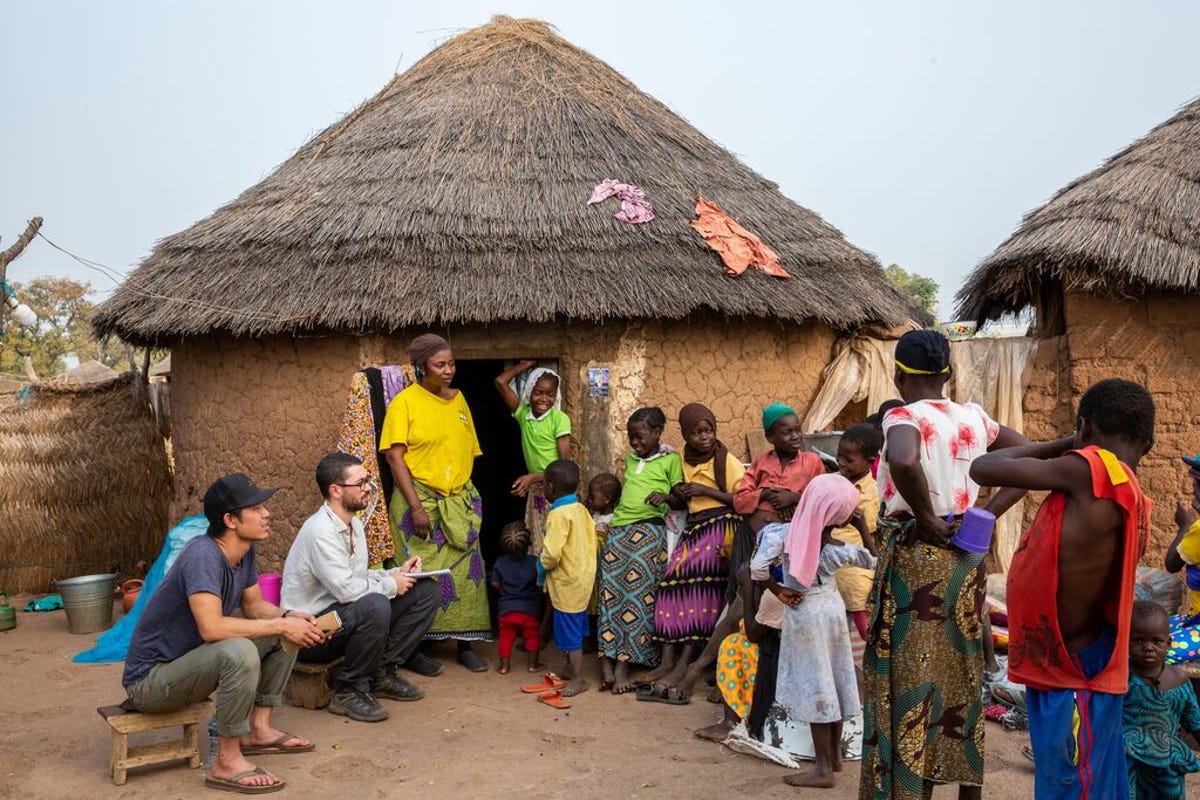The importance of behavioural change
By designing for behavioural change, Appleseed has helped Saha Global amplify its impact on clean water consumption in northern Ghana.
© Sara Hylton for Cartier Philanthropy
Over the last four years, Cartier Philanthropy has provided critical, tailored support for partner organisations that goes beyond finance. Inspired by the success of a first collaboration with IDinsight, we connected with Appleseed in 2021, bringing its behavioural expertise to our grantees.
We sat down with Philip Kao, Co-Founder and Executive Director, to explore how Appleseed’s work is helping non-profits tackle crucial social challenges more effectively.
DESIGN FOR BEHAVIOURAL CHANGE
“Every non-profit serious about impact must consider themselves a behaviour-change organisation. Missions cannot be achieved without someone doing something differently."
Founded in 2015, Appleseed is a team of researchers, communicators and strategists who help non-profits put behavioural change at the heart of their thinking in order to achieve greater and more enduring impact.
The organisation traces its origins to 2010, when Co-Founder Philip Kao experienced the importance of behavioural change first-hand: “Appleseed was born out of my personal failures working on water projects in China and Ecuador,” he explains. “The projects ultimately failed, not because the technology was bad, or the teams weren’t well-funded, but because we couldn’t change people’s behaviour. Many people simply weren’t using the water filters we provided to drink clean water, or the water kiosks we set up to sell clean water.
“That led to the realisation that this problem of low adoption is rife across the development sector. Many great organisations achieve only limited impact, despite having everything at the ready, because they don’t know how to design for behavioural change.”
Over the past nine years, Appleseed has completed missions on four continents, helping early- and growth-stage social enterprises transform their thinking around behavioural change. In 2017, we saw the crucial impact of its work with our partner Semilla Nueva in Guatemala, where Appleseed conducted social marketing research and generated strategies to improve farmers’ adoption of biofortified seeds. On the strength of the results, we brought Appleseed in as an official capacity-building partner in 2021, funded to support those of our grantees who decide to work specifically on behavioural change.
“The challenge we address has to be real,” says Kao, explaining their approach. “The collaboration must be initiated by the project partner. We don’t push our help on anyone. We also require the non-profit to contribute a small percentage of the funding. That’s very important, because if they’re willing to put money into our work together which they could have spent elsewhere, it tells us they’re going to be committed.”
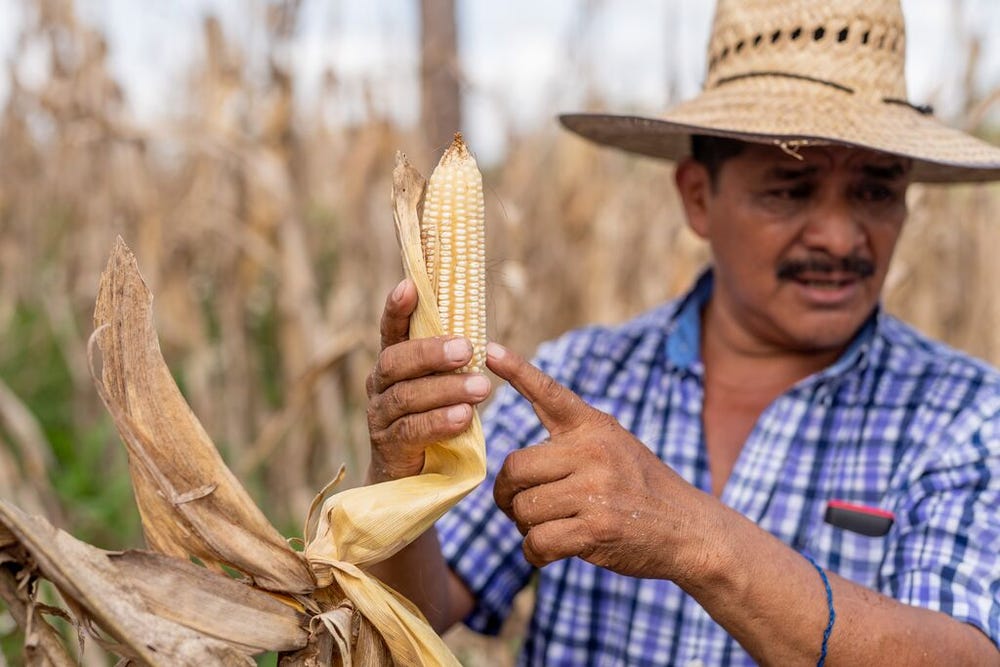
© Semilla Nueva
APPLESEED AND SAHA GLOBAL
Saha Global, an organisation that makes clean water accessible in remote villages in northern Ghana, is one of the Cartier Philanthropy partners to have requested Appleseed’s expertise.
“In northern Ghana, a typical water source is a dugout, which is basically a gigantic, dirty puddle that fills up during the rainy season,” explains Kao “The dugout has to last the entire dry season, which is several months, and gets extremely contaminated. People practice open defecation, there are animals everywhere, they share the water, and that’s the water they go and fetch every single day for all their needs, including drinking.”
To tackle this, Saha pioneered a model which trains local women in every village to treat the water available to them with a very simple, cost-effective water treatment technology, and then sell the clean water back to the community at affordable prices. Since 2008, Saha has established 460 clean water businesses in the region, bringing clean water to more than 134,000 people.
While the model was clearly effective at producing clean water, data showed that even after 10 years, water sales were nowhere near high enough for people to be drinking it exclusively. For Saha to move from access to impact, exclusive consumption is absolutely essential. This is where Appleseed came in.
To address the issue, Appleseed first needed to understand why the Saha system wasn’t working as effectively as intended. Their on-site research generated three main insights.
THE MESSAGE
“Our first finding was that Saha had been pushing the message to drink clean water because it was healthy. That just wasn’t a motivation that resonated with the local population in the right way,” says Kao. “People did buy the water, but only drank it when they were sick, to get better, or during Ramadan, as it was perceived as special. The message was too future-facing and abstract.”
THE MAIN DRIVER
“The second key finding was working out what the villagers really care most about, and that was indisputably easing the burden of their daily chores. We noticed that the biggest complaint was almost always how tired they were, or how their bodies were breaking down, or how much time they had to spend doing manual labour. Every request the villagers made for help regarded a labour-saving technique or device.”
THE PROCESS
“There was one more important finding. Saha Global had achieved something remarkable: getting the cleanest water to the hardest-to-reach villages. But in doing so, they had inadvertently made clean water hard to get and actually drink. You see, the villagers were required to use a special safe storage container to keep the clean water uncontaminated. They would store these plastic containers in their huts, meaning they needed to go back to them every time they wanted a drink. For people who spend most of their time outside, that was a problem.
“To fully understand this problem, you also need to be familiar with the traditional process for collecting and using water. The villagers have high-volume water needs. To meet these needs, they use the biggest containers available to collect the water from the dugout. They then store the water in these giant communal clay pots placed throughout the family compound, and do all their drinking, bathing and cleaning using these pots. Saha’s required process simply didn’t align with the existing culture. There were too many changes.”
Getting people to change the way they do things is difficult. The responsibility often lies with non-profits to design adequate products or services with the communities they serve to improve their life. “This requires them to challenge some deep-seated, underlying assumptions,” says Kao. “Saha was ready to do this and learn to improve their services.”
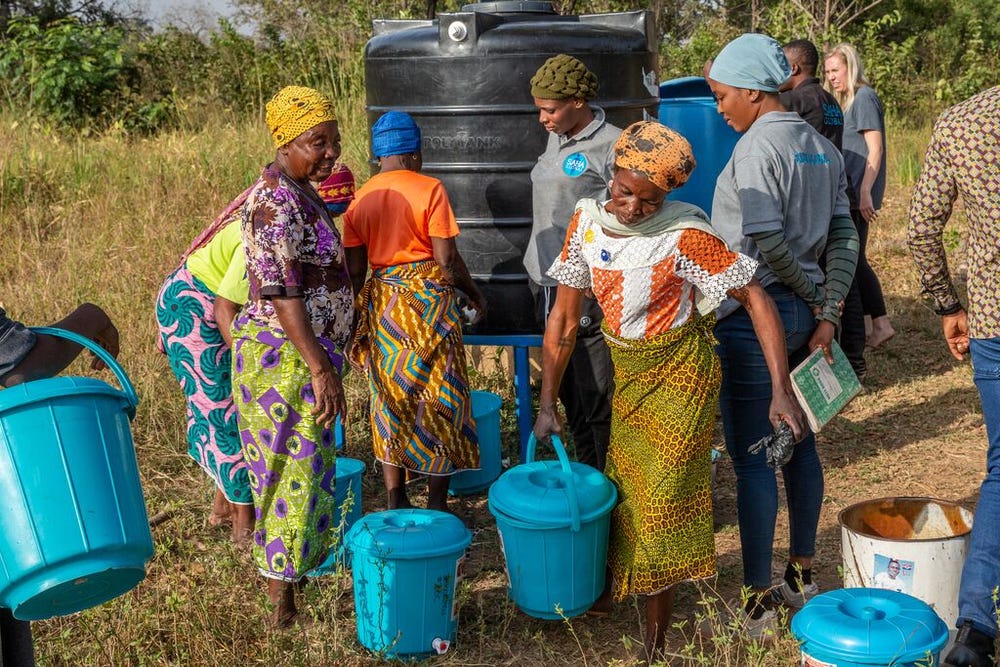
© Sara Hylton for Cartier Philanthropy
THE RECOMMENDATIONS
On the back of these three main findings, Appleseed saw two big opportunities for Saha to adapt its model and shift from increasing water access to increasing water consumption.
First, they should scrap the messaging about clean water being good for people’s health, and instead focus on easing the burden of daily life. To do this, Saha enlisted the help of local MotoKings – three-wheeled mini-trucks – to transport the clean water from the treatment centres right into the villages. This saved significant time and energy every day for the women tasked with collecting water.
The second action was to leverage existing infrastructure. Instead of requiring the villagers to use the safe storage containers, Saha should allow them to use any container available, including the communal clay pots. While this has introduced the potential for cross-contamination, Saha believes that this risk will decrease over time as containers are used to carry exclusively clean water.
QUICK TWEAKS FOR BIGGER IMPACT
“These changes, which were implemented very quickly in several pilot communities, have already led to a dramatic increase in the amount of clean water that the Saha-trained women are selling and people are consuming,” explains Kao. “Now, more than half these villages have what Saha believes is exclusive consumption, meaning people are buying an average of two litres per person per day. The water is selling out. They’ve had to find ways to enable the women entrepreneurs to work more and, in some villages, have even had to open a second water treatment centre to keep up with demand.”
Reflecting on their work with Appleseed, Kate Cincotta, Executive Director at Saha Global, says: “There was so much we could do to improve the way we work and increase our impact, without requiring our customers to change. That’s one of the main lessons we learned from our work with Appleseed.”
MAKING BEHAVIOURAL CHANGE A PRIORITY
Appleseed’s work with Saha Global perfectly illustrates how behavioural change can impact development programme performance, and the long-term hope is that incorporating behavioural change becomes the norm, rather than the exception.
“Almost every organisation we talk to realises they need to do stuff differently once they start looking through a behavioural lens,” explains Kao. “There are thousands of teams out there who could use this approach to listen and adapt to the populations they serve.
“If we really want non-profits to invest more in designing for behavioural change rather than relegating it to an afterthought, then funders have to see the value in it too, and encourage or facilitate it, especially early on.”

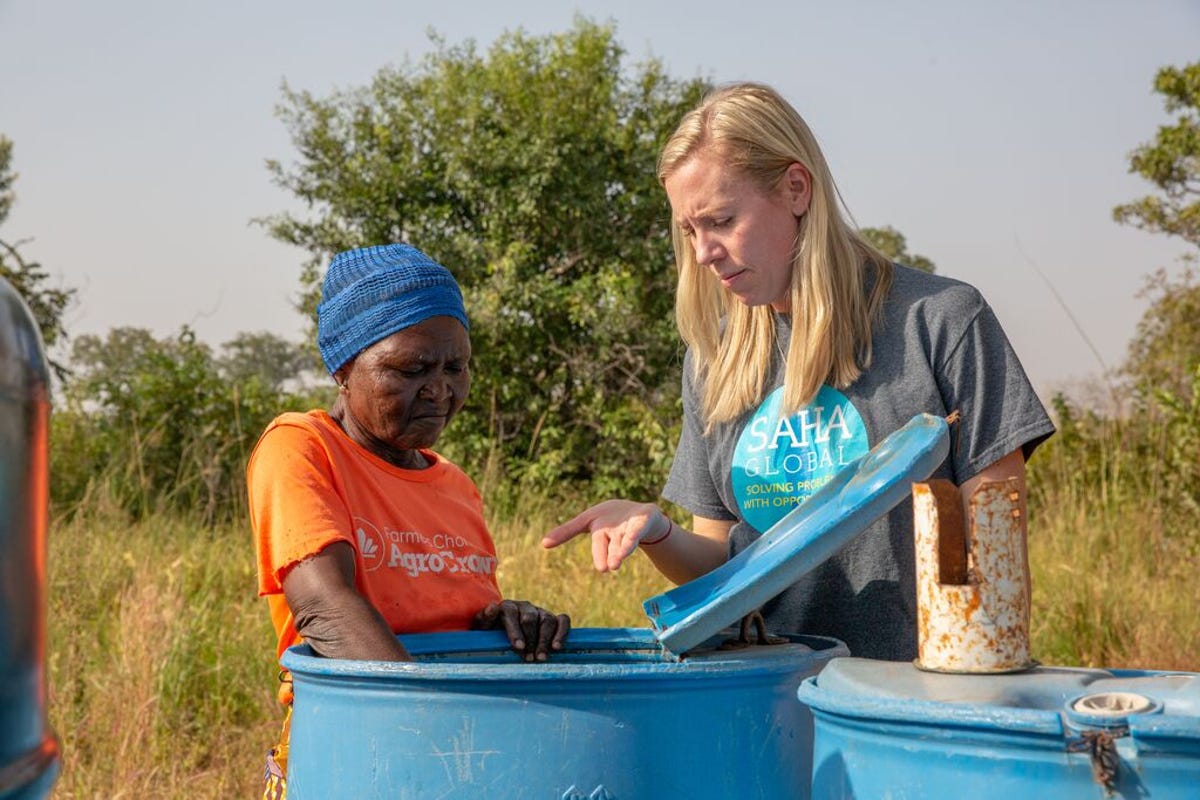
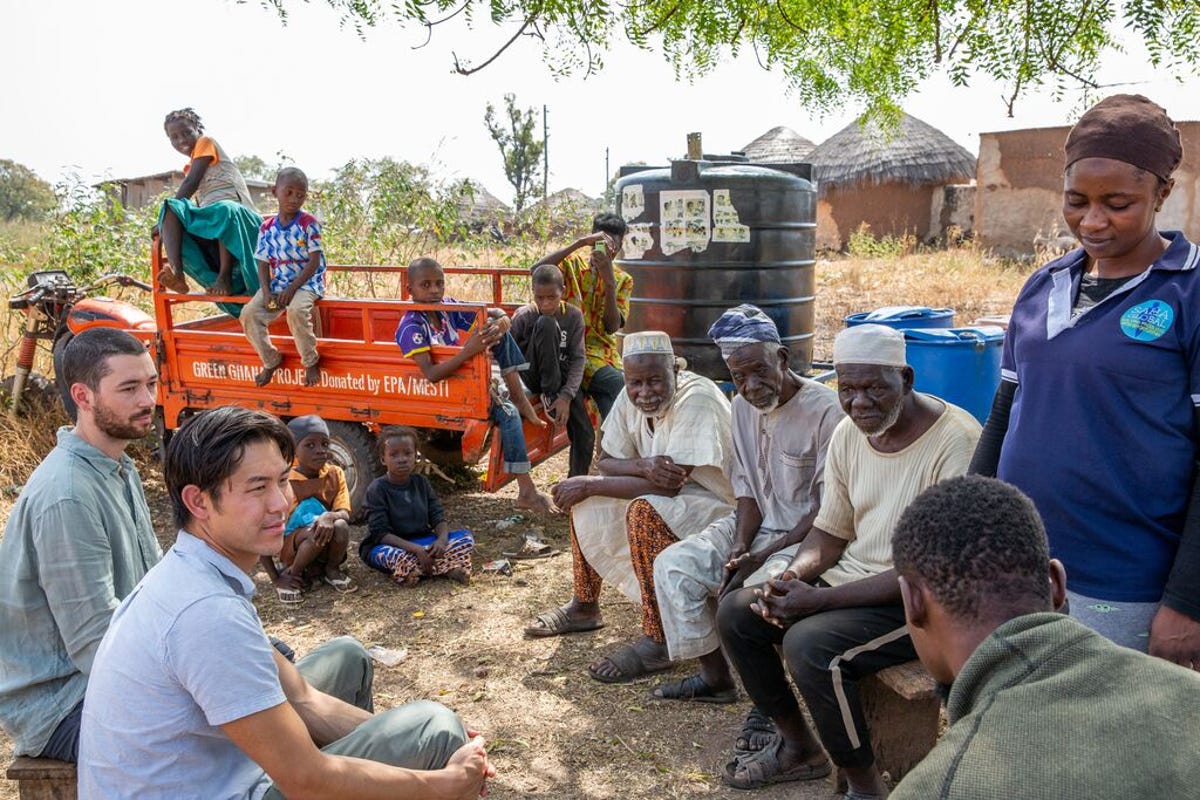
.jpg?&width=1200&quality=80&auto=webp)
